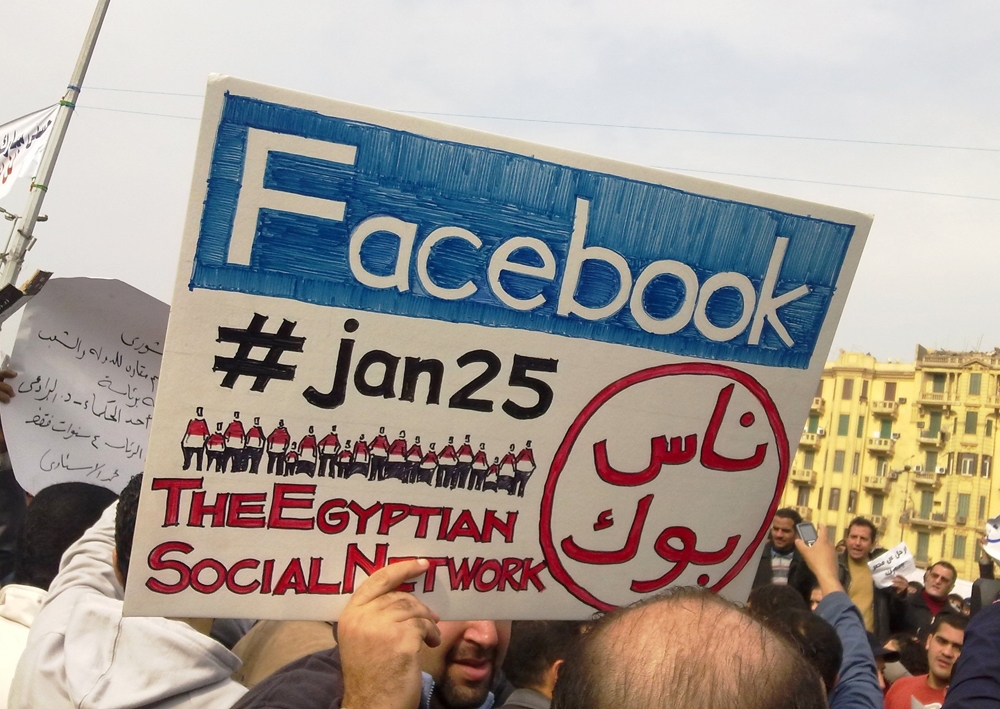Egypt is the one of the largest countries in the Arab world. Strategically situated in both the Levant and in North Africa, it flourishes with rich cultural history and political clout.
It would not be an understatement to say that if Egypt changes, the whole Arab world would change. In January 2011, inspired by the bravery of the Tunisian people in overthrowing their dictator, Egyptians took to the streets in masses to rid themselves of their long-reigning dictator, Hosni Mubarak.
Egyptians living under Mubarak’s reign were refused their most basic human rights including the right to free speech, expression, and assembly and experienced economic misery.
Decades of repression, crony capitalism, and widening income inequality led to the explosion of 2011 when the people finally demanded change. Unfortunately, Egypt’s democratic aspirations have not spread out as hoped.
An astonishing 40 per cent of Egyptians lived and continue to on less than $2 per day and the illiteracy rate sits at approximately 25 per cent.
It is argued that military meddling is responsible for this. In Egypt, the military is a massive entity whose political and economic influence dates back 60 years to the time of Gamal Abdel Nasser.
Every single president, with the exception of the Muslim Brotherhood’s Mohammed Morsi, has climbed his way up through the armed forces. Indeed, the military was one of the few institutions that managed to survive the turbulence of the revolution and emerged intact.
To ensure that its interests are served, the Egyptian Armed Forces have interfered in the political scene both directly and indirectly.
From the very onset of the 2011 revolution, the Egyptian Armed Forces was in charge of forming the “transition government” after Mubarak was overthrown and spearheaded the coup d’état against Morsi and the Brotherhood in 2013.
In fact, current Egyptian President Abdel Fattah el-Sisi was the head of the armed forces prior to the coup. It turns out, the military’s continued entrenched position in Egyptian affairs is a major obstacle to the establishment of democracy.
The country’s dictatorial legacy also affected why the Egyptian uprising of 2011 did not materialize. Egypt is a country that has been under repression for over six decades and the prospects for establishing a flourishing democracy are grim since the political damage done by decades of repression cannot be undone in six months or a year.
Divisions within the opposition parties that are genuinely interested in democratic change have made it more difficult to pressure for reforms. These political divisions have all worked to the advantage of the military junta which face no significant, organized opposition.
“The liberal and left opposition must reconstitute itself and change its message to widen its appeal,” says Vojo Vokic, a PhD candidate with expertise in the field of Middle Eastern affairs.
“These liberal and left forces must extend a hand to the moderate elements of the Muslim Brotherhood and attempt a sort of détente.”
“It is essential for the opposition forces to come up with a plausible and effective economic plan for Egypt, with which it can deal with political corruption and economic decline, as the military is unlikely capable of doing so.”
As the United States actively backs and funds the military-backed dictatorship, Egypt’s path towards democratization is also made that much harder.
Egypt and the United States work closely to preserve regional security, relying on safe passage through the Suez Canal and over Egyptian skies to conduct military actions in the Middle East and beyond.
Egypt is one of the highest recipients of American military aid with well over one billion dollars annually for their cooperation with Washington and keeping peace with Israel.
With the anniversary of the Egyptian revolution approaching its fifth year, their democratic aspirations have been largely shattered.
Egyptians are presently living under more brutal dictator than the one they knew in 2011.
The military junta in Cairo, backed and propped up by the United States, have used their power to resist true democratic reforms as their grip on power has been solidified with the ousting and subsequent repression of the Brotherhood.
So far it seems that one dictator has merely replaced another. Let’s hope that in the coming years, things take a turn for the better.
Sohrab Vatanchi, Contributor
Featured image courtesy of Wikimedia



